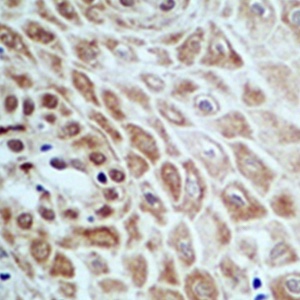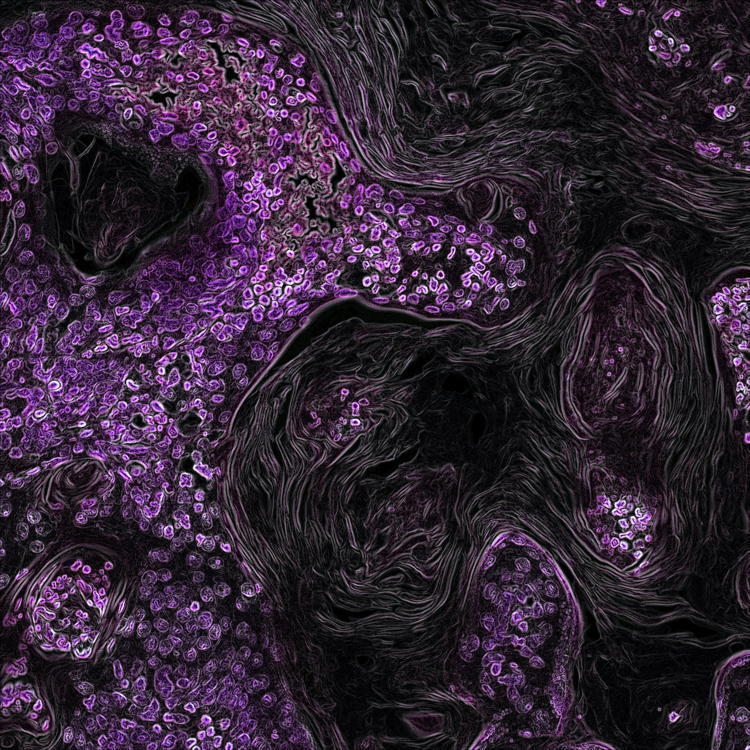Substance P is overexpressed in cervical squamous cell carcinoma and promoted proliferation and invasion of cervical cancer cells in vitro

Submitted: 6 April 2023
Accepted: 20 July 2023
Published: 31 July 2023
Accepted: 20 July 2023
Abstract Views: 363
PDF: 289
HTML: 6
HTML: 6
Publisher's note
All claims expressed in this article are solely those of the authors and do not necessarily represent those of their affiliated organizations, or those of the publisher, the editors and the reviewers. Any product that may be evaluated in this article or claim that may be made by its manufacturer is not guaranteed or endorsed by the publisher.
All claims expressed in this article are solely those of the authors and do not necessarily represent those of their affiliated organizations, or those of the publisher, the editors and the reviewers. Any product that may be evaluated in this article or claim that may be made by its manufacturer is not guaranteed or endorsed by the publisher.
Similar Articles
- E. I. Cortés-Gutiérrez, M. I. Davila-RodrÃguez, J. L. Fernández, C. López-Fernández, J. Gosalvez, DNA breakage detection-fluorescence in situ hybridization (DBD-FISH) in buccal cells , European Journal of Histochemistry: Vol. 56 No. 4 (2012)
- Guangbao He, Yibo He, Hongwei Ni, Kai Wang, Yijun Zhu, Yang Bao, Dexmedetomidine attenuates neuroinflammation and microglia activation in LPS-stimulated BV2 microglia cells through targeting circ-Shank3/miR-140-3p/TLR4 axis , European Journal of Histochemistry: Vol. 67 No. 3 (2023)
- V. Bradaschia-Correa, F.A.C. Barrence, L.B. Ferreira, L.F. Massa, V.E. Arana-Chavez, Effect of alendronate on endochondral ossification in mandibular condyles of growing rats , European Journal of Histochemistry: Vol. 56 No. 2 (2012)
- B Vitolo, MR Lidonnici, C Montecucco, A Montecucco, A new monoclonal antibody against DNA ligase I is a suitable marker of cell proliferation in cultured cell and tissue section samples , European Journal of Histochemistry: Vol. 49 No. 4 (2005)
- Xiang Li, Yu Xie, An Kang, Yue Wang, New bitongling (NBTL) ameliorates rheumatoid arthritis in rats through inhibiting JAK2/STAT3 signaling pathway , European Journal of Histochemistry: Vol. 65 No. 1 (2021)
- A. Kovšca Janjatovic, G. Lacković, F. Bozic, D. Kezic, M. Popovic, H. Valpotić, I. Harapin, Z. Pavicic, B. Njari, I. Valpotić, Histomorphometric evaluation of intestinal cellular immune responses in pigs immunized with live oral F4ac+ non-enterotoxigenic E. coli vaccine against postweaning colibacillosis , European Journal of Histochemistry: Vol. 54 No. 1 (2010)
- Carlo Alberto Redi, Protein expression in mammalian cells: methods and protocols , European Journal of Histochemistry: Vol. 56 No. 3 (2012)
- S Ferrando, T Ferrando, L Girosi, A Mauceri, S Fasulo, G Tagliafierro, Apoptosis, cell proliferation and serotonin immunoreactivity in gut of Liza aurata from natural heavy metal polluted environments: preliminary observations , European Journal of Histochemistry: Vol. 49 No. 4 (2005)
- AM Cianciulli, R Bovani, C Leonardo, F Iori, AM Coletta, R Marzano, A Antenucci, GM Gandolfo, C Laurenti, DNA aberrations in urinary bladder cancer detected by flow cytometry and fish: prognostic implications , European Journal of Histochemistry: Vol. 45 No. 1 (2001)
- Carlo Alberto Redi, RNA therapeutics - Function, design and delivery , European Journal of Histochemistry: Vol. 55 No. 2 (2011)
<< < 27 28 29 30 31 32 33 34 35 36 > >>
You may also start an advanced similarity search for this article.

 https://doi.org/10.4081/ejh.2023.3746
https://doi.org/10.4081/ejh.2023.3746











